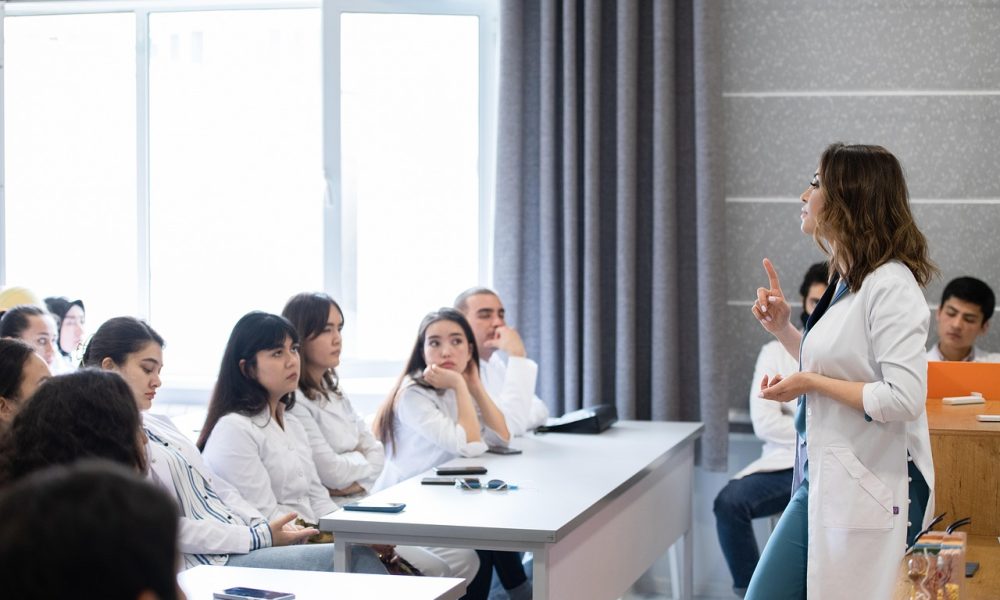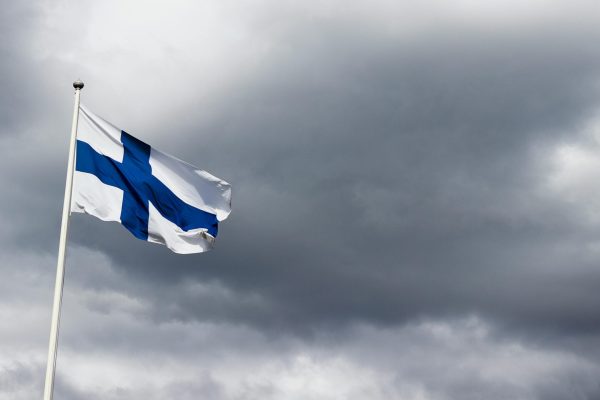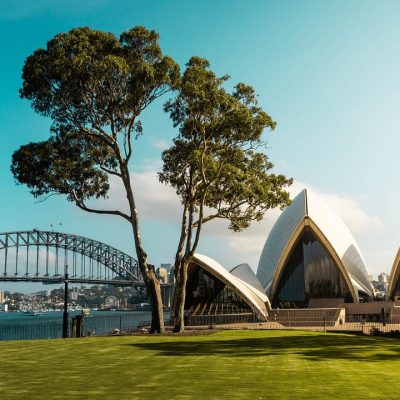
MBBS in Bangladesh: A Complete Guide for Nepali Students
Introduction
Bangladesh is becoming a popular destination for Nepali students who want to pursue MBBS (Bachelor of Medicine, Bachelor of Surgery). It offers affordable tuition fees, high-quality medical education, and a chance to study in English. In this article, we’ll explore the top universities, admission requirements, scholarships, and career opportunities for Nepali students who want to study MBBS in Bangladesh.
Why Choose Bangladesh for MBBS?
Affordable Tuition Fees: MBBS programs in Bangladesh are more affordable compared to other countries like India or Western nations. The tuition fee can range from $6,000 to $15,000 per year, making it an attractive option for Nepali students.
Globally Recognized Degrees: Degrees from Bangladeshi medical universities are recognized by the World Health Organization (WHO), National Medical Commission (NMC), and other international bodies. This means that graduates can practice medicine in several countries, including Nepal, India, the USA, and the UK.
English-Taught Programs: Many universities in Bangladesh offer MBBS programs in English, making it easier for Nepali students to adapt to the language of instruction.
High-Quality Education: Bangladesh’s medical universities are known for their high educational standards, experienced faculty, and clinical training facilities. The course is structured to provide theoretical knowledge along with hands-on clinical experience.
Cultural Similarities: The culture and lifestyle in Bangladesh are similar to Nepal, which helps Nepali students adjust quickly. The proximity to Nepal also makes it easier for students to travel back home during holidays.
Why Choose Bangladesh for MBBS?
Affordable Tuition Fees: MBBS programs in Bangladesh are more affordable compared to other countries like India or Western nations. The tuition fee can range from $6,000 to $15,000 per year, making it an attractive option for Nepali students.
Globally Recognized Degrees: Degrees from Bangladeshi medical universities are recognized by the World Health Organization (WHO), National Medical Commission (NMC), and other international bodies. This means that graduates can practice medicine in several countries, including Nepal, India, the USA, and the UK.
English-Taught Programs: Many universities in Bangladesh offer MBBS programs in English, making it easier for Nepali students to adapt to the language of instruction.
High-Quality Education: Bangladesh’s medical universities are known for their high educational standards, experienced faculty, and clinical training facilities. The course is structured to provide theoretical knowledge along with hands-on clinical experience.
Cultural Similarities: The culture and lifestyle in Bangladesh are similar to Nepal, which helps Nepali students adjust quickly. The proximity to Nepal also makes it easier for students to travel back home during holidays.
Affordable Tuition Fees: MBBS programs in Bangladesh are more affordable compared to other countries like India or Western nations. The tuition fee can range from $6,000 to $15,000 per year, making it an attractive option for Nepali students.
Globally Recognized Degrees: Degrees from Bangladeshi medical universities are recognized by the World Health Organization (WHO), National Medical Commission (NMC), and other international bodies. This means that graduates can practice medicine in several countries, including Nepal, India, the USA, and the UK.
English-Taught Programs: Many universities in Bangladesh offer MBBS programs in English, making it easier for Nepali students to adapt to the language of instruction.
High-Quality Education: Bangladesh’s medical universities are known for their high educational standards, experienced faculty, and clinical training facilities. The course is structured to provide theoretical knowledge along with hands-on clinical experience.
Cultural Similarities: The culture and lifestyle in Bangladesh are similar to Nepal, which helps Nepali students adjust quickly. The proximity to Nepal also makes it easier for students to travel back home during holidays.
Best Medical Universities in Bangladesh
1. Dhaka Medical College (DMC)
Founded: 1946
Location: Dhaka
Why Choose? Dhaka Medical College is one of the most respected and long-established medical universities in Bangladesh, with a rich history of excellence. It offers a comprehensive MBBS program with modern facilities and experienced teaching staff. It’s a popular choice for Nepali students due to its reputation and affordability.
Research & Training: DMC offers state-of-the-art research facilities and clinical training at its associated hospitals.
2. Chittagong Medical College (CMC)
Founded: 1957
Location: Chittagong
Why Choose? Known for its quality education and clinical training, CMC offers an excellent MBBS program. It is considered one of the best medical colleges in Bangladesh, and the city of Chittagong offers a peaceful environment for students.
Facilities: It provides practical training at its affiliated hospital and offers a well-rounded curriculum.
3. Bangladesh Medical College (BMC)
Founded: 1986
Location: Dhaka
Why Choose? Bangladesh Medical College is one of the top private medical colleges in the country. The college is recognized for its excellent academic programs, practical training, and modern medical facilities.
Student Support: BMC provides strong support for international students and offers well-equipped hostels.
4. Sylhet MAG Osmani Medical College
Founded: 1962
Location: Sylhet
Why Choose? This medical college is located in the beautiful city of Sylhet. It offers high-quality medical education with excellent teaching staff and research facilities. The city is known for its affordable living and peaceful environment, making it a popular choice for Nepali students.
Affordability: The tuition fee and cost of living are quite affordable for Nepali students.
5. Rajshahi Medical College (RMC)
Founded: 1958
Location: Rajshahi
Why Choose? Rajshahi Medical College is a well-established institution with excellent academic and clinical training programs. The city of Rajshahi is known for its calm and welcoming environment, making it an ideal place for students to focus on their studies.
Clinical Training: RMC provides solid practical experience and exposure through its associated hospitals.
Admission Requirements for MBBS in Bangladesh
To apply for MBBS in Bangladesh, Nepali students need to meet the following requirements:
Educational Qualification: Students must have completed their 10+2 education with science subjects, including Biology, Chemistry, and Physics, from a recognized institution.
NEET Requirement: Nepali students must have cleared the NEET (National Eligibility cum Entrance Test) exam to be eligible for admission.
English Proficiency: Some universities may require proof of English proficiency (IELTS or TOEFL) for international students, though many medical colleges offer programs in English.
Age Limit: The minimum age requirement is usually 17 years by the time the course starts.
Application Process: The application process is straightforward. Students need to fill out an online application, submit the required documents (such as academic transcripts, passport, NEET score, etc.), and pay the necessary application fee.
Admission Requirements for MBBS in Bangladesh
To apply for MBBS in Bangladesh, Nepali students need to meet the following requirements:
Educational Qualification: Students must have completed their 10+2 education with science subjects, including Biology, Chemistry, and Physics, from a recognized institution.
NEET Requirement: Nepali students must have cleared the NEET (National Eligibility cum Entrance Test) exam to be eligible for admission.
English Proficiency: Some universities may require proof of English proficiency (IELTS or TOEFL) for international students, though many medical colleges offer programs in English.
Age Limit: The minimum age requirement is usually 17 years by the time the course starts.

Cost of Studying MBBS in Bangladesh
Tuition Fees: The tuition fee for MBBS in Bangladesh varies depending on the university. It typically ranges from $6,000 to $15,000 per year.
Living Expenses: On average, students can expect to spend around $200 to $400 per month on accommodation, food, and other living expenses. Bangladesh is one of the more affordable countries for international students.
Cost of Studying MBBS in Bangladesh
Tuition Fees: The tuition fee for MBBS in Bangladesh varies depending on the university. It typically ranges from $6,000 to $15,000 per year.
Living Expenses: On average, students can expect to spend around $200 to $400 per month on accommodation, food, and other living expenses. Bangladesh is one of the more affordable countries for international students.
Cost of Studying MBBS in Bangladesh
Tuition Fees: The tuition fee for MBBS in Bangladesh varies depending on the university. It typically ranges from $6,000 to $15,000 per year.
Living Expenses: On average, students can expect to spend around $200 to $400 per month on accommodation, food, and other living expenses. Bangladesh is one of the more affordable countries for international students.
Career Opportunities after MBBS in Bangladesh
After completing MBBS in Bangladesh, students can pursue several career paths:
Practice in Bangladesh: Graduates can work as doctors in Bangladesh after passing the licensing exams.
Practice in Nepal: Nepali students can take the Nepal Medical Licensing Exam (NMLE) to practice in Nepal.
Practice in India: Graduates need to clear the FMGE/NEXT exam to practice in India.
Postgraduate Studies: Many MBBS graduates pursue further specialization through postgraduate programs in fields like surgery, pediatrics, cardiology, etc.
Practice in Other Countries: Graduates from Bangladeshi medical universities can also practice in other countries, such as the USA, UK, Canada, and Australia, after completing the required licensing exams.
Career Opportunities after MBBS in Bangladesh
After completing MBBS in Bangladesh, students can pursue several career paths:
Practice in Bangladesh: Graduates can work as doctors in Bangladesh after passing the licensing exams.
Practice in Nepal: Nepali students can take the Nepal Medical Licensing Exam (NMLE) to practice in Nepal.
Practice in India: Graduates need to clear the FMGE/NEXT exam to practice in India.
Postgraduate Studies: Many MBBS graduates pursue further specialization through postgraduate programs in fields like surgery, pediatrics, cardiology, etc.
Practice in Other Countries: Graduates from Bangladeshi medical universities can also practice in other countries, such as the USA, UK, Canada, and Australia, after completing the required licensing exams.
Practice in Bangladesh: Graduates can work as doctors in Bangladesh after passing the licensing exams.
Practice in Nepal: Nepali students can take the Nepal Medical Licensing Exam (NMLE) to practice in Nepal.
Practice in India: Graduates need to clear the FMGE/NEXT exam to practice in India.
Postgraduate Studies: Many MBBS graduates pursue further specialization through postgraduate programs in fields like surgery, pediatrics, cardiology, etc.
Practice in Other Countries: Graduates from Bangladeshi medical universities can also practice in other countries, such as the USA, UK, Canada, and Australia, after completing the required licensing exams.
Scholarships for International Students
- Several universities in Bangladesh offer merit-based scholarships to international students, including Nepali students. Some of the scholarships are provided by the universities themselves, while others are available through government programs.
- Government Scholarships: The Bangladesh Government offers scholarships to international students, including Nepali students, under various schemes.
- University Scholarships: Many universities offer partial or full scholarships based on academic performance.
- External Scholarships: There are also a number of external organizations that offer financial aid to students pursuing MBBS in Bangladesh.

How to Apply for MBBS in Bangladesh
Choose a University: Research and select the best university that suits your requirements.
Verify Eligibility: Make sure you meet the academic and NEET requirements.
Prepare Documents: Gather your academic transcripts, NEET scorecard, passport, and other necessary documents.
Submit Application: Apply online through the university’s official portal.
Entrance Exam (if required): Some universities may require an entrance exam, so be prepared.
Admission Confirmation: If accepted, you will receive an admission letter.
Apply for Student Visa: Submit your documents to the Bangladesh Embassy for a student visa.
Start Your MBBS Journey: Once your visa is approved, you can travel to Bangladesh and begin your studies.
How to Apply for MBBS in Bangladesh
Choose a University: Research and select the best university that suits your requirements.
Verify Eligibility: Make sure you meet the academic and NEET requirements.
Prepare Documents: Gather your academic transcripts, NEET scorecard, passport, and other necessary documents.
Submit Application: Apply online through the university’s official portal.
Entrance Exam (if required): Some universities may require an entrance exam, so be prepared.
Admission Confirmation: If accepted, you will receive an admission letter.
Apply for Student Visa: Submit your documents to the Bangladesh Embassy for a student visa.
Start Your MBBS Journey: Once your visa is approved, you can travel to Bangladesh and begin your studies.
Conclusion
MBBS in Bangladesh is an excellent option for Nepali students who want to pursue medical education at an affordable cost while receiving high-quality training. The country offers world-class universities, a diverse student body, and the opportunity to practice medicine globally.
If you are looking for guidance in your application process or need help with university selection, Universal Academic & Migration Consultants is here to assist you. Contact us today to make your MBBS dreams a reality!



